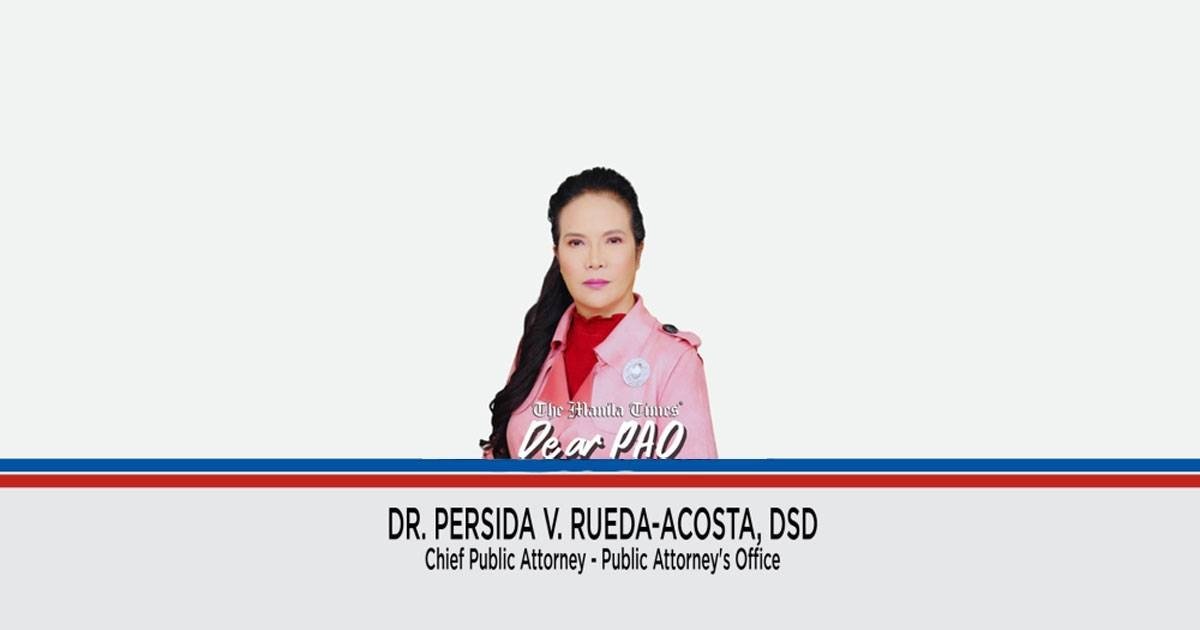Dear PAO,
I am a senior citizen and former public servant retiring here in the Philippines after years of being abroad. Since my return, I’ve noticed the diversity and immense talent in the local music scene, especially among the younger generation, like that of my grandson. Seeing their talent and potential, I wonder if there are current government programs aimed at developing and harnessing the musical talent of the youth to promote music and culture in general. I hope your office can enlighten me.
Eva
Dear Eva,
To answer your query, we shall refer to Republic Act (RA) 11915, known as the “National Music Competitions for Young Artists Act.” This law was passed as part of the policy of the State to recognize and support non-government organizations that develop and discover young musical artists and talents and to promote and preserve Philippine music and culture. (Sec. 2)
Under this law, the National Music Competitions for Young Artists (NAMCYA) Program is designated as the Philippine National Youth Development Program for Music. It aims to raise standards of excellence in music through various competitions and festivals, including the celebration of the National Music Week for Young Artists pursuant to Presidential Proclamation 1173, series of 1973. (Sec. 3)
Related to this, NAMCYA, the Philippine National Youth Development Program for Music, identified the following, among others, as its objectives:
“(a) Discover outstanding musical talents through nationwide competitions…;
“(b) Assist in the cultivation, development and advancement of outstanding young Filipino musicians through scholarships, training, performances, and other forms of incentives;
“(c) Preserve, develop and promote Philippine music as an art and as an important component of cultural and social development;
“(d) Establish a training program for music leaders, experts and teachers; xxx
“(f) Encourage and support the creation and performance of works by young Filipino composers and make possible their publication and dissemination;
“(g) Recognize artistic achievement through awards, grants and services;
“(h) Undertake a continuing program of research, documentation, and publication of Philippine music for dissemination to schools and the general public; xxx
“(l) Allocate funds in the technical production for the performing arts and the promotion of original Filipino music in various genres and styles; xxx
“(o) Maintain a database of Filipino youth participating in various NAMCYA-organized activities…; and
“(p) Invest in digital information systems in order to enhance the production and performance of creative works directed towards cultural development.” (Ibid)
To achieve these objectives, a Special Committee was formed, composed of members from supporting government agencies such as the National Commission for Culture and the Arts, Department of Education, Department of Tourism, and Cultural Center of the Philippines, among others. (Sec. 4) In addition to this, there are also entitlements granted by government agencies, such as the use of the Cultural Center of the Philippines as a venue for events; assistance from the Department of Education and Commission on Higher Education in identifying and training participants across the country; and even donations and grants from government-owned and controlled corporations. (Sec. 5)
The strong support of the government in developing and nurturing Filipino musical talent can be seen in programs and activities that are institutionalized under RA 11915. In doing so, the musical talent and artistry of the younger generation can prosper to further promote Filipino music and culture.
We hope that we were able to answer your queries. This advice is based solely on the facts you have narrated and our appreciation of the same. Our opinion may vary when other facts are changed or elaborated.
Editor’s note: Dear PAO is a daily column of the Public Attorney’s Office. Questions for Chief Acosta may be sent to [email protected]

